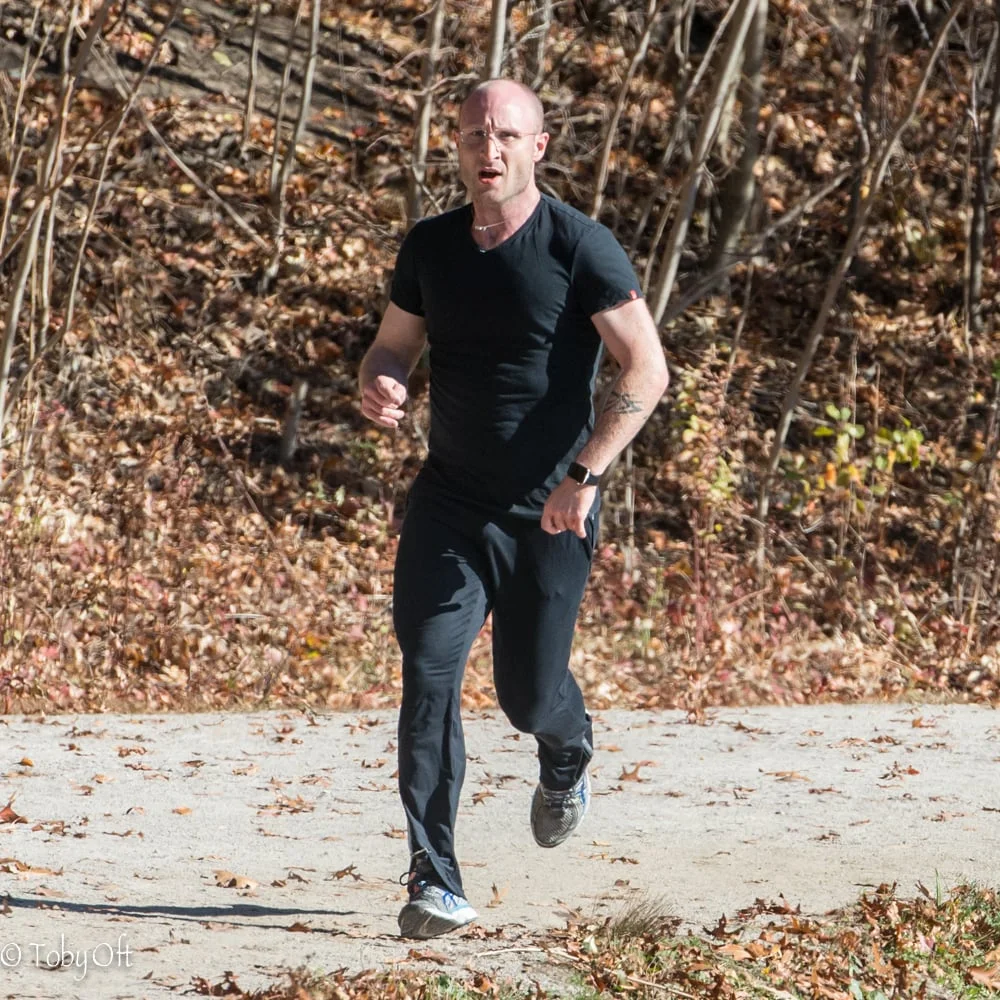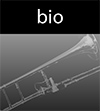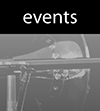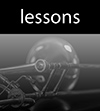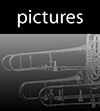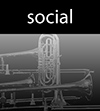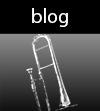Apple watch gives heart rate at a glance during a morning rehearsal at Tanglewood.
I love gadgets!! And I also love apple!! So at the beginning of Summer I purchased an Apple Watch. It is not the most fashionable thing in the world and I will admit it was definitely overhyped prior to launch for how quirky it feels to use. But as a former cyclist, I had been lusting after the release of the Apple Watch for the health data it could reveal. Without using bulky chest straps or the concern of beeping during rehearsals and concerts, I was hoping I could utilize the Apple Watch to track my heart rate during stressful performances just as I had when I was a competitive cyclist training and racing in Florida.
As a cyclist or a runner, a heart rate monitor can be like having a coach on your wrist. Knowing where an athletes anaerobic threshold is (usually around 155 beats per minute depending on age) allows any athlete to strategically train with workouts specifically tuned to develop muscle strength, or stamina, or especially cardiovascular endurance and efficiency.
For example, by training well below his/her anaerobic threshold, an athlete can train their heart to stay at a lower rate during ever increasing levels of intense workouts. You can easily see how a heart rate monitor would give valuable performance feedback to performing musicians.
As a performer, I've often wondered how much thoughtful physical training could help me keep my heart rate low during pressure situations on the job in the Boston Symphony. Sometimes when performing Bolero, my heart is beating so hard it feels like it will leap out of my chest. For although learning how to play well despite that kind of nervousness has been a journey that I wouldn't trade for anything, the learning process of managing this performance pressure is part of growing as a musician. I have tried exercising as a part of work preparation with mixed results but with a consistent heart rate monitor tracking my BPM all day I knew I could really hone in on an even more effective strategy for success.
So I began my summer with a plan to exercise intelligently. Keeping my heart rate low during long gentle runs and then monitor the results during rehearsals and concerts throughout the strenuous Tanglewood season where the BSO performs 3 different concert programs a week for 8 weeks in addition to Chamber Concerts and coaching the esteemed Fellows of Tanglewood Music Center. I learned some interesting things.
1. Elegant deep breathing significantly lowers heart rate.
Who knew that deep slow breathing would relax me during a stressful performance (sarcasm)?! I say "elegant" because exaggerated, or violent deep breaths definitely brings the heart rate up. I developed a strategy of breathing that consistently brought my heart rate 5-10 beats a minute lower by taking what I call elegant breaths.
- Inhale Slow: Relax the shoulders and the rest of the body so there is plenty of slack to expand into the full breath
- Exhale Slow: Upon reaching 100%, exhale slowly as you stretch the torso long.
Think of your body like a balloon. Allow a linear expansion on the inhale so there must be relaxed slack to expand. When you want to get the air out of a balloon you can squeeze it (tension kills sound!) out or simply stretch the balloon long. Slightly stretching my body tall as I exhaled was a big game changer. I like to call this elegant breathing and it inspired trackable results in my heart rate. It is extremely effective while playing for gorgeous tone production and obviously for staying relaxed while counting rests before a big entrance.
2. Heart rate will stay high well after a work out.
... Is it possible that regular exercise can help me keep my heart rate lower during a performnance?
Enter working out regularly with beautiful road running in the Berkshires. I found that running sans earphones is a wonderful way to practice being in the moment. You see things when you jog that you definitely cannot see from the car window. Although I used to enjoy cycling, the road was always moving by way too fast to see the little nature dramas unfold. I chose my jogging work outs in the mid afternoon, between the morning and 4pm rehearsals and I must say that for the short term, I think it would have been just as calming to go for a 1 hour walk for the beauty in nature that I saw for an hour running each day.
Exercise takes planning. I needed to build a schedule for eating so I didn't get a side-ache while exercising. I think it is important to not infect the trombone with the body stress or tightness that maybe a natural result of strenuous exercise. Timing sleep, eating, practice, rehearsals, and performances, let alone time with the kids is a real challenge to maintain maximum effectiveness that is a skill set in its own right. But this was the main thing I wanted to answer for my experiment. Is it possible that regular exercise can help me keep my heart rate lower during a performance?
Interesting fact for the concert performers consideration? My heart rate stayed elevated for at least 3 hours after the work out was finished. I experimented with working out in the evening which is my usual MO, but it was a real challenge to get everything in no matter what time of day I did my 3-6 mile run.
3. Eating high sugar meals keeps the heart rate elevated for several hours.
It's the craziest thing, but eating a meal with lots of breads or processed sugar like ice cream, cake, or pie (basically everything yummy...) put my heart rate into the 80's at rest and I could not get it down with any of the usual strategies like breathing or visualization. The worst part is that it stayed there for several hours after the meal was finished. I will say that although my heart rate was high, I didn't feel winded or nervous. In fact, if I didn't have the Apple Watch on my wrist tracking my heart rate, I don't think I would have been aware it was so high. It was just interesting to see that it was 20-30 BPM higher than usual and I couldn't affect it lower, no matter what I did. I speculate that digestion brought my heart rate up in general, but similarly to a heavy work out, high sugar meals definitely kept it at a high level for a long period of time and it was all but impossible to lower via elegant breathing or positive visualization.
4. Stay hydrated, alcohol in moderation, good sleep, multivitamin, etc.
All things your doctor would tell you to do to maintain a healthy lifestyle right? You can definitely put these things under the "Duh" category but the results truly were evident. When continually tracking my heart rate, I got to see very clear evidence for when my body was stressed and therefore less capable of performing at my best. It's best to look at these steps as things as a musician can do to support her/his body's resiliency. It can be challenging to quantify exactly how much any one of these life habits helped because different stressors affected my body and mind differently on any given day. There can be domestic matters or even the weather that can have dramatic effects on anyone's ability to perform well under pressure. The truth is, a healthy body can deal with stress much more effectively than a weaker one.
Concert Nerves
Taking steps like elegant breathing techniques, regular intelligent exercise, and eating smartly portioned, well timed meals seemed to give me near complete control over my heart rate in rehearsals. Because of the higher pressure, obviously concerts were another matter. Due to the nerves and intensity of the situation, concert stress made all my experimental strategies only slightly less traceable than in rehearsals, however, the resiliency my body cultivated from a healthy life style became abundantly evident while under performance stress as the summer wore on. From all the above strategies, what I experienced is added resilience in performance situations but lets be clear - A performance is still a performance and that pressure represented in my elevated heart beat was always observable.
During rehearsals my range of beats per minute is generally 52 - 78. Counting rests I could focus on my breathing and get my heart rate below 60 BPM and while playing I noticed my heart rate was much closer to 70-75 BPM. Concert nerves made things a little higher where I noticed a consistent range of 65-85 was what I could expect from my body.
Experiment (do not try this without tenure....)
So I'm a curious gentleman and I decided to see what would happen if I push the envelope. I wanted to honestly use my body for the science of the summer. For concert and rehearsal nerves I wanted to prove to myself what works for healthy life habits as well as breathing habits to calm a rapid heart beat. It is clear that a healthy life style and elegant breathing techniques definitely increased my ability to regulate my heart rate with breathing and visualization under pressure.
But what if.... Using what I learned, I made my heart rate really fast in such a way that it was impossible to bring it down? I decided to run 6 miles of intervals 2 hours before our BSO Tanglewood Concert of Mahler 6. Although I could usually expect my elevated heart rate during a concert to average between 65 - 85, for this performance my heart rate was 95 - 135. The crazy thing? I felt fantastic from beginning to end.
As I got in shape throughout the summer I experienced increasing effectiveness in regulating my heart rate but as I said before, there were things like over eating, heavy workout, or high sugar meals that made it all but impossible to effectively lower my heart rate for several hours - especially before a performance.
Conclusion? I think the concert might have been an endorphin rush of positive excitement. I was filled with positive energy but my body was too tired to get overly wound up like it might have with usual nerves. I've spoken to a number of musicians who are in better shape than me who actually swear by a good work out on the day of a big concert or recital. It is important to note that they do plan their work out to happen 3 hours out from their performance, but I am excited to try more cardio exercise in a similar fashion.


